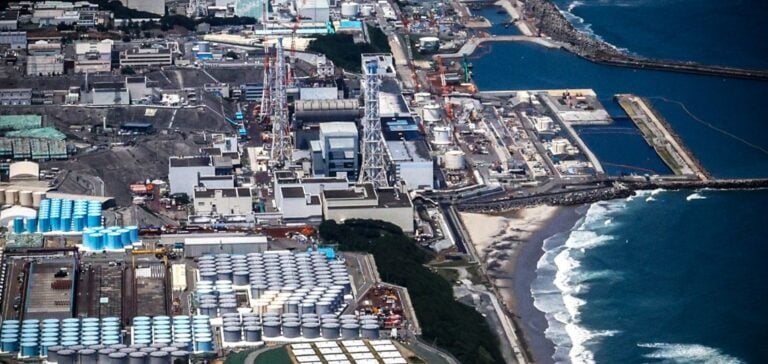The operator of the Fukushima nuclear power plant, Tokyo Electric Power Company (Tepco), announced the successful transport of a radioactive debris sample from the site to a laboratory near Tokyo. The operation was carried out in complete secrecy for security reasons, a common approach in handling highly radioactive materials.
The sample, weighing about 0.7 grams, was extracted using specially developed equipment. The Oarai Nuclear Engineering Institute, affiliated with the Japan Atomic Energy Agency (JAEA), will conduct an in-depth analysis of this debris fragment. This analysis is expected to last several months, with the goal of gathering valuable data for future debris recovery operations.
A delicate mission in multiple phases
Since the 2011 accident, which followed a 9.0-magnitude earthquake and a tsunami, the Fukushima site has been under constant monitoring. The tsunami caused the cooling systems of three of the six active reactors to melt down, leading to the worst nuclear disaster since Chernobyl in 1986. Experts estimate that 880 tons of radioactive debris remain inside the reactors, posing a significant challenge for the plant’s decommissioning.
The decommissioning work, spanning several decades, requires innovative technological means. The gradual removal of this radioactive debris is one of the most technical aspects of the project. The JAEA expects that analysis results will provide crucial information for expanding the scope of future recovery operations.
Controversy over water management
Beyond the fuel debris, the management of water stored on site has sparked international debates. Since August 2023, Japan has been releasing this water into the Pacific Ocean, a process validated by the International Atomic Energy Agency (IAEA) but which has provoked strong reactions from some countries, notably China. Beijing temporarily suspended all imports of Japanese seafood, a measure soon followed by Russia.
Despite criticism, the IAEA reaffirmed that the water release was in line with international safety standards. In September, China eased its stance, announcing a gradual resumption of seafood imports from Japan, signaling a potential reduction in regional tensions.
Japan’s decommissioning challenges
The decommissioning of the Fukushima plant is a major project for Japan and requires close cooperation with international authorities. The efforts by Tepco to retrieve and analyze radioactive debris illustrate the complexity of the ongoing decontamination process, which requires decades of commitment and technical innovation.
This new phase of debris analysis represents a key step in ensuring safe and effective planning for future decommissioning phases. Japan continues to work under the watchful eye of the international community, seeking to reassure both local residents and neighboring countries about the safety of its operations.






















